
The Post Secondary Transition Conversation
We talk about the ins and outs (and everything in between) of the secondary transition process for families of students with disabilities! Hosts Meghan (Smallwood) and Patrick (Cadigan) serve as supportive guides, leading families step-by-step up each rung of the transition ladder.
Also check out our parent website: https://www.postsecondarytransition.com
The Post Secondary Transition Conversation
060. Interview: Donna & Bayo from The Difference 2-17 Pt. 2
This week, hosts Meghan (Smallwood) and Patrick (Cadigan) continue to talk with Donna Pidel and Adebayo (Bayo) Sodunke from "The Difference 2-17." This time, their discussion focuses on The Difference 2-17's emphasis on personalized care, community inclusion, and the importance of giving individuals a voice; they stress the importance of being in the heart of towns for accessibility and how that is essential for inclusion. They cover overcoming challenges including maintaining quality as they expand and the desire to address housing needs. Join the conversation!
Episode Keywords:
community creation, self-directed services, Alexander, legacy, personal touch, engagement, member happiness, housing challenges, staff training, quality control, community inclusion, parental trust, member progress, genuine relationships, organization growth
Links:
Self Direction (page)
Maryland (specific) Links/Supports:
The Difference 2-17 (site)
To download a copy of a transcript for this episode or any of our previous conversations, click here.
Also visit our Podcast webpage to find links to all of our other discussions; go to www.p2transition.com.
Additional information about post-secondary transition can be found at our website.
The Post-Secondary Transition Podcast Facebook page.
Visit our YouTube Channel to find additional video resources.
Intro/Outro music by AudioCoffee from Pixabay.
Transition music by Joseph McDade from Transistor.
Welcome. This is the Post Secondary Transition podcast. We have conversations around the ins and outs and everything in between of the transition process for families of students with disabilities. I'm one of the hosts. My name is Meghan Smallwood, and I am a public school transition coordinator, and my co-host is?
Patrick Cadigan:And I'm Patrick Cadigan, and I am also a public school transition coordinator. All right, here we go. You'll remember from last week that we had the pleasure to sit down with Donna and Bayo from The Difference 2-17, and we want to get right back to that conversation already in progress. One question that I have, and in a way, it's almost like we're going to change lanes for a second, but I am fascinated by the business side of this, in the sense that you decide that you want to create a community, you want to create a safe space for individuals, but that's not necessarily something that has been done. So what were some of the steps that you had to take to get there?
Donna Pidel:Wow, that's a great question. So we started it Patrick with $1,400 in our bank account. So we opened this little bank account. We didn't really think about a liaison with anybody else. We just thought that perhaps through private money, private donations, or whatever it could be, that we could run a program. And then we we discovered through talking to parents, that they had budgets through the Department of Disabilities in Maryland, and that they wanted to use their funding for our program, but not program, but through for self directed services. And so what we did was we contacted DDA and became a vendor for self directed services. So most of the people that we serve are funded. They are funded. We are not but they are funded through self directed services, which is government waiver.
Adebayo Sodunke:Yes. DDA.
Meghan Smallwood:And I know I alluded to this before, but the 2-17 I want to throw that in there. What does that stand for?
Donna Pidel:Yeah, that's Alexander, my son's birthday. So he was born on to February 17, 1988 and it was important to you know, without Alexander, we would not be where we are. We wouldn't have the people that surround us. So I think it was very important for me to attach that name, and it was very important to bio that his name was attached so that that legacy, it really does have meaning, and when I'm no longer associated in one way or another through a retirement bio continues that legacy, and 2-17 is on all of our documents and paperwork. And I think it's gives Alexander a voice, because, you know, they say that without a voice, you are powerless, and that is a very poignant and strong commitment that we have to our members, that even though some of them do not have a voice, that we give them that voice. And I think that the 2-17 is his voice.
Meghan Smallwood:I love that personal touch. I think it just speaks to to the values of your of you guys, and just the family feelings like, you know, the relationships are just so important. You're it's just not another client coming in. They are individuals that you really are taking the time to get to know, and the whole process of things, and as you've you guys have grown, and you've grown a lot over the last year or so. I mean, bio you mentioned about your the social media before. I love, love looking at the Facebook pictures and just seeing the the variety of pictures in the places, and just all the the happy faces, they all truly are living their best
Adebayo Sodunke:We get from parents all the time, like, the lives. kind of lifestyle you get at a different style I want to be, I want to leave my job or comment. And it starts from the moment, from the, you know, like, I get this from parents. Oh, my goodness. Where did you get these drivers from? They come into my house and, you know, big orgs and a big smile to the members, or they went to the center, they walked in, is with all some friendship. They asked about one another, like, hey, where is this person who is at his job? You know, I was having a meeting one of the members. He has his government typical meeting, and he was talking to the person. Well, some of the guys had. Gone already. They went on a trip. Somebody went to the job volunteering. I was just staying around because I'm waiting for you. Oh, my God, did I hold you up and say yes, but it's okay. So that's the beauty of the difference. It's like, you know, no matter how big we are or what location we are, they just, we call it a starting point and the end point. Sometimes, for some members, we have members that don't even step the foot in the building. We meet straight up from work or from their volunteer places, or they stop go straight from their house and take them to the gym or something, for instance. So it's always a place that you come in pick, it's like an alicorn menu, right? Picking a shift. Okay, this morning, I would like to have a yoga and I'm going to want to go to the movies. I want to volunteer at that place, and I'm going to go to my job in the afternoon, and they literally just sell out the days, and boom, they go with their staff. And the beauty of that is they still have that relationship and that friendship, but they're still able to run an individual life, because at the end of the day, when it's first said and done, the importance one other thing that is so important to us is everybody to have a voice of the hell not to follow crowd, because we know our guys people pleaser. Sometimes they tend to make everybody happy or make their parent happy. We always say, no, we want you to be happy. We want you to walk in here knowing that this is my heavenly space. Yeah, and we get members that don't want to go home.
Donna Pidel:And I think it's attributed to the growth, because word has come from various fractions of Maryland to say, When are you going to be in Potomac? When are you coming to Annapolis? When are you coming to you know, different different places. And the beauty is that in in that growth. The vision is that we do expand and give the entire state of Maryland opportunities, but the growth is also, you know, for us to expand into other avenues for people with not just jobs, but housing. Housing is a huge problem for people that have autism and disabilities in general, as you know. So our vision goes into Maryland a little bit further and but also to bring housing into the forefront, because it is so lacking. So we're not quite sure how housing is going to be tied to the difference at this particular point in time, but we would like it to be a part of what we do.
Meghan Smallwood:That's great to hear, because that is a topic I hear a lot of families talking about.
Patrick Cadigan:We recently, and I forget specifically who it was, but I want to say that there was a conversation that there was a group of transition coordinators, and housing came up more than a few times.
Meghan Smallwood:Yeah and I know a couple families that as they approach 21 they are thinking about it, and the thought process they have is, well, I'm just going to find a program that has that to offer as well. And while that's easy, I think it would be a nice if you didn't have to worry, like, Okay, well, this suits for the day. So might as well just do the residential you want to make sure it's a good match in all areas; so...
Donna Pidel:Yes, you do. And depending on someone's socio economic situation, group homes are, in my opinion, are less than favorable for a person that has great needs, because oftentimes their voices are not heard, and their quote, unquote, behaviors come out of a need to have their voices heard. And so behaviorally, I would say it's not the best situation for many people. And then if you're looking for an apartment or to share an apartment in self directed services, you're you know you have to fit the bill for that. So that can be very, very expensive. So you really want to find a roommate that matches your son or your daughter's personality, and it's not always easy to find. So I just think the whole housing fraction for people who self direct their programs is a very complicated one on different levels.
Meghan Smallwood:Yeah I agree, definitely.
Patrick Cadigan:One question that I have in speaking to something that the both of you had mentioned before, when it comes to this outward expansion, this growth, especially when there is such a need for it, however, from the business side of things, how do you make sure that the experience stays authentic?
Donna Pidel:Well, it's very important. And I think that question is, is a very, very important question. I would say for me that in interviewing staff and making sure that the staff are not just equipped with the tools that they're going to be required to use. On many different levels, you know, from behaviorally to safety and every other way, is that that people understand that you're not coming to work for an organization that is a cookie cutter organization. You're coming to an organization that has and places huge expectations upon you in order to work with us, so a person has to be extremely motivated, very trustworthy, and we really see them with our own eyes. Work with a member for many, many months before we completely invest in that person. So our goal is not to have many, many members. It's to have enough quality, trained staff members that can continue our legacy, continue that standard to one that is is satisfactory to us, yes.
Adebayo Sodunke:So we have our own in house quality control, pretty much, that's what she's telling us. So it's so important to us. Like to say every single member's experience, not their lifestyle. Now they get to pick and choose what they want, but the experience of the difference, no matter what location they go, stay the same, treated with respect, given opportunity, given opportunity to develop and to learn, to teach, to be part of a community, to have a preach friendship and family, all those costs stay the same. So one of the thing we do is like our leadership come from within. Every single person, when they walk in, will literally walk with staff, preparing them for the next road ahead. Every single staff walking through the door, they after coming earlier than the member shows up. They stay leader that the member shows up. I can't count many times where we are more overstaffed in the real world. But to the difference, it's never been about money. It's about always been about the service and the quality of that service. So what we tell has given us over the time is we've been able to breathe, like I use the word breed staffs way ahead of their time. So they are kind of waiting for that opportunity to jump on their own ship, like, for instance, the young lady that is running the Ellicott City Center. She's been she's been preparing for a manager job for almost a year. She was in Westminster, was in Frederick location, come to Mount early location, so they get a chance to have the experience, and keep the experiences the same and unique before they actually get out. And two, she didn't go by herself. She went with veteran staff. She went with, we didn't start with a bunch of brand new members. So the members from one location go to the other place. So every extended location becomes almost like the same thing, because the members are moving, the staffs are moving. They get used to that environment before new member comes in and they bring the new staff, I said even to the personal support side, we will we start training staff when we don't even get paid for that, for that member that they're going to work with, because what is important to us is to teach them the culture, how to treat somebody, how to respect somebody, how to work with them in an old setting, or how to work with them in the community, because we always say there is no baby sitting at a difference. There is no doing it for you at a difference. Your job is to help that person be independent, be free of life decision on their own, and be part of their own life. So it's the beauty of it is not having the goal of money, of financial piece to it, Air Force tremendously to be able to say the book is always open. Train the staff to the maximum level, all level of training. DDA, even all required training. CPI, first aid. CMT, community, every single training will say, you see it, you get it to that to the staff so they are well prepared and well keep outside of their heart being target.
Donna Pidel:So, so we hope it doesn't, you know, we always talk to each other constantly. We always say we don't want it to be watered down. It can't go into a, you know, a multiple chain kind of franchising sort of experience. It's got to be original. And the standard is kept up, because we're always at every location. And when we matching location, members circulate in, in and around, Howard County, Frederick, Westminster, Columbia, they're all over the place. So we we follow them, so we have people that actually will turn up at at a park. So if we know that we have a member and a staff member going to a park one on one, someone will will be watching at that park.
Adebayo Sodunke:I was in DC last week, so that's so...
Donna Pidel:We hope Patrick and Meghan never to allow our standard to be watered down. Use some place for that. It's a big fear, and it's a great question.
Patrick Cadigan:You kind of hinted at it earlier, the location or the choice of location. Do you guys have, like, a criteria that you use when you are looking for a location, or does something just jump out at you.
Donna Pidel:Okay, we have a criteria so and it comes from years and years of observing, you know, the traditional program being in the backwoods somewhere or in an industrial park. We wanted to be in a town and in the center of town, because that's where all the opportunities are, the opportunities to meet people, the opportunities to get jobs. So we actually do pick where we're going to be based on the opportunities that we feel our members can partake in. And it's lovely in Mount Airy, because there is there are parks, there are shops, there's a lot of job opportunities, volunteer opportunities, but for someone who may not be able to volunteer because of their disposition, we have lots of parks and just for some Fun things that everyone can choose from. So in every town that we go, in Frederick, we're right on Market Street. So if you drop a pin, we're in the heart of the historic district in Frederick. Same in Westminster, same in Mount Airy. Same in Ellicott City.
Adebayo Sodunke:I love it. I have to come see the Ellicott City site. You're gonna love love love.
Meghan Smallwood:The pictures looked amazing from the grand opening.
Patrick Cadigan:And that was, I remember when you guys had expanded in Westminster, and you were taking photos of the building, and you were kind of cataloging it as you were going along. And I was paying attention to that myself.
Adebayo Sodunke:Thank you.
Donna Pidel:Wow. Thank you so much.
Meghan Smallwood:I know that the parents in our county were very excited to hear about the Ellicott City one.
Donna Pidel:Oh, yes. Oh how wonderful.
Adebayo Sodunke:I got parents, you know, I was at an event this Saturday, and I met a lot of those parents, and they were like, I cannot wait to meet you by on top. You know, they book an appointment. They want to see it, they want to come in and that, like, what is? What I said is, like, it's so important to be in the out of town. I said he gave us a very easy access to all these organizations. We don't even have to knock too hard on those DORS. We are right in your face. Yeah, you know, we volunteer with an organization this this weekend, this past week, and the owner texts me says, Will your guys like to make some quick bucks? I said. I said, Sure. Why not? So he texted he wanted to move a divider from the office. We put it out on the floor, and two of the guy says we could do it. We got the muscle. You go get the money. So that's how beautiful it is that anybody can walk and see us. We're like an open chef. Walks in the Rotary Club, walks in the Kiwanis Club walks in. They come for cup of coffee or tea. Random parents were walking up like, where did you guys open here? Have a son that is up the steak and the next thing, like the sun is part of the difference.
Donna Pidel:Yeah, being accessible. Think being accessible is important for our members as well, so that they know that, you know, as bio said, we have the mayor of the town that just walks in and says, who can make me a cup of coffee? It's important for our members, if they are within the community, that they have that ability to open their lives and open their minds to meeting various people, that they're not just with each other, that they're actually out there in the community, and the inclusion is terribly, terribly important. It can't be underrated. Inclusion is everything, you know, it's in it's just a way of life that we want them to feel included. So being in the town is, is to that advantage?
Meghan Smallwood:Yeah and I feel like we we work so hard in the school system for inclusion that you don't want it to get lost after they leave, just because you know whatever path they choose doesn't have that opportunity, so that's great to hear.
Donna Pidel:Thank you.
Patrick Cadigan:So then that, of course, I feel like is going to lead into the next big question is, what has been the biggest challenge in this whole process? Or challenge, challenges?
Meghan Smallwood:What's the top five?
Adebayo Sodunke:Yeah, that's a good question. Well, we take our challenges on anyway. That's what we funded the get go. We've, you know, we've taken an option that is not there, created it, and kind of wrong with it, of course, is we say the biggest one is, like we've succeeded in so many ways, maybe dealing with the, you know, the government side of things, you know, just trying to get things going, you know, trying to explain. In who we are. Because when you're out of the box, you know, the typical system, it becomes a little explanation over and over again to most people. But so far so good. We know. I mean, we've, we've blown past our own imagination. We'll sit down and says, do you even imagine this will be where it is? Do you know we don't even market the difference. We don't advertise. We don't do anything. All we do is post speeches, and that's do us. Yes, yes. Picture that people see, I said it's less than 10% of what we do and but without posting and family and friends that comes to the difference, they blow it up themselves. We have not even single we need to sell this organization. No...
Meghan Smallwood:I'm gonna say, I'd be afraid to see if you advertise, because the late every day now from word of mouth.
Adebayo Sodunke:Yes, because every single time a new parent walk in, this is what I say, oh, you know who I'm. I'm coming from the sources of parents. They told me, Oh, I live on the same street I saw their teeth happy every day. I want my daughter to be part of that. So is that amazing? So I'll say struggle. We've just take everything we've tried say we're not looking left, we're not looking right, we're going to give the best of every member that walk through this door, and nothing less.
Donna Pidel:And I think also from a parental standpoint, if you see, it's the fear that we have experienced as parents in going from school where you have people who teachers, who support you, special educators who are so involved, especially like yourself, so involved in in that day to day life, know that person inside and out, know the family and their fear in leaving the school system, what are they going to find next? And I can only say that finding the different, if you find the difference, I think that you're extremely fortunate, because there are so many programs with which your child is literally a binder. The binder goes everywhere with that individual, and that's no and that person isn't known for their personality. They're known for the binder for it's they're just a number, and we didn't want that to be, to be the case, that that's a challenge, not for us, but trying to explain that to a parent, that actually your son or your daughter will be so free, it will be an experience That's so liberating to them to trust us with that we we feel very, very fortunate that parents trust us with them.
Adebayo Sodunke:I think it's the testament of seeing the kids doing so much and engaging so much, not just sitting dark. You know, I always said the brand I was, Oh, my goodness, I can't even afford all those trips because some days it's 100 miles away from where we are. We go to Pennsylvania when DC twice in one week. One of the thing the difference of data science from other organizations that have worked for in the past, we don't have a geo phase of where we can go after because of mileage cost or gas costs, the difference is open. This is part of the difference. Pennsylvania is Virginia is, you know. So if there is something that for us to go see or to go explore and enjoy and meet or learn from, we're going for it. And the staff knows that. Every single staff knows that, so they are constantly looking for things and exploring things for the members to enjoy and giving them the opportunity to choose fish will make sense to that.
Meghan Smallwood:And you have a variety too, which is wonderful.
Adebayo Sodunke:That's the thing. Every single day is like trying to get people to not follow each other all day long. So we, we can't some members, we have to move there. Decide to say, what do you want to do? Oh, what's that person doing? Do? What if I want to do? You have your choices. You could pick your own menu. And that's how beautiful it is. We have seven vans to be on the road every single day.
Meghan Smallwood:Seven different directions.
Adebayo Sodunke:Seven different directions. And every staff uses their vehicle, which really involves a mileage. So their own vehicle, they use it. So we're constantly, like I said, you know, wherever you turn, you're going to see a difference member or stamp somewhere, somewhere, some place is driving and moving so, but it's the beauty of it is not focusing on the money has given us that freedom to keep on without coming back to say, let's do it. They want to do that. Let's go for it.
Donna Pidel:Yeah, I think it was so genuine. You know, our love for this our love for this field, is so genuine. It's so exciting to be with people. And I always feel every day that when I walk into the difference, I feel like I found myself working. In one field, as I was a classical ballet choreographer for 30 years and teaching teaching all over the world. I feel like, yes, that was wonderful, and it was a great opportunity, but I never really found my place. I feel like, after 30 years of working in one job, I have found my place, and it's the happiest place to be with people who literally have no demands. They're just open souls.
Meghan Smallwood:They're just themselves.
Adebayo Sodunke:Yes.
Donna Pidel:Yes. They have no hidden agenda. Yep, you know, I always say to bio, they're closest to God because they're just such a heart that is so genuine.
Meghan Smallwood:Yeah, and they don't overthink. They want to give you a hug, they'll give you a hug. If they're pissed off, they'll let you know, yes, but you know, they're just their true selves. And I yeah, I completely understand where you're coming from, and I think you answered what was the most rewarding thing about it. I mean, just being around them and doing it for them.
Donna Pidel:I feel so honored, because, like you said, Meghan, they have, you know, no preconceived notions that open books. Their lives are open. They're so giving. And I always say, you know if, if they have a moment that you go, you know that they're displeased, you'll know. You'll know and and it's not them that has to learn. It's us. We need to learn. We need to learn about that person's likes, dislikes, what makes them tick, what makes them happy, and how they everybody speaks, everybody speaks in one way or another. So if you get smacked up across the faces because you didn't listen.
Meghan Smallwood:Yeah, it's not their fault. It's mine.
Adebayo Sodunke:Just so rewarding I said, you know, I always say, every single day I don't have a job, it's a lifestyle, because it's what I chose and what I've chosen, me and all of us that have been a part of the difference. We are blessed and refreshing. Need to be in this field and to be working with these gifts, seeing the member go from a struggle moment being able to communicate their wants and need and giving them tools to be able to do that effectively in their own way, and if they're using their strength, it's amazing, you know, from taking somebody to say, good luck, you know, I hope you keep him for more than two days, to that same person going out to restaurant to eat, going to listen to music, going get it. I'll give you an example. I had a young man that doesn't do blood work. He won't do blood work, because he will snap his head all the time. And I told the parent that says, If you trust me and you put the blood work in my area, I would do it. And he says, Good luck, buyer. Doctors keep came out because it can they do they need blood work to be able to continue the medication. And we did it again and again, he had a flu and COVID shot last week. Boom, he did it successfully. It get ear cut, just because now it comes to the difference, the parent did not just get happy. They bought a house closer to the difference, just to be family of the difference. We have family buying a complete house for their kid now, just because of the difference. I said, the joy of what we do is everlasting. I woke up sometimes I get up before him and I'm like, smiling, and says I can't wait to get back in. And that doesn't mean I don't get scratched or speed up swallow somebody's speed. You probably know the person so because they just let it go. And I was like, There's nothing I can do. They're coming out of a van. Well, we're gonna have to rub this together, but seeing them progress in life and learning skills and understanding that it is not a cookie cutter. It's not one way to learn. It's each person have their own way, and they judge. Yes, nobody's judging them. You know, if you can, if you don't have to measure a cup of coffee, we'll get you the coffee pot. We're gonna personalize your life for you in the best way for you, singing that progress every single day is the best thing that man or woman can experience in life. Seeing that genuine smile like real love, somebody screaming ah, even though they couldn't talk. You know, I miss you. What have you been we we have a Labor Day uh, I said I spend the entire day on FaceTime and phone call, I can't wait to be back a month and text message, God, if I, if I don't have a chance to do this again, God, take me. I'm done, because that's the best job anymore. So you're so blessed to be part of your life.
Patrick Cadigan:Well, I will tell you what, Meghan, I think that's a heck of a place, too. Conversation, guys, we have been working on this for so long. Thank you so much for sitting down and talking with us.
Meghan Smallwood:Thank you so much. I just I could listen to you guys talk all day.
Donna Pidel:Thank you. I think this is the first time that we've actually shared our story.
Meghan Smallwood:I know I heard it when. I came out to visit, but I'm glad we can get the word out, because it's an amazing story.
Donna Pidel:Thank you. Thank you. Thank you. Thank you both so much.
Patrick Cadigan:We would love the information from this and all our other discussions to reach as many families as possible, and we need your help to do that. So please like, follow and share out our podcast. You can find our conversations on all the major podcast platforms, including Apple, Spotify, YouTube, music, and that's just naming a few. So please share and share often. You can always find the links to the information from this discussion in our show notes.
Meghan Smallwood:Check out our YouTube channel. We've done some of the legwork for you by curating videos of topics that revolve around transition. We have playlists. We cover guardianship, alternatives to guardianship ABLE accounts. And there's still more to come as we are finding those videos that we think will be valuable to use. So please be sure to subscribe there as well. And then finally, check out our website, which is full of information and links to resources around the transition process. So make sure to go to www.postsecondarytransition.com we thank you so much for the time you spent with us, and look forward to talking again soon.
Podcasts we love
Check out these other fine podcasts recommended by us, not an algorithm.
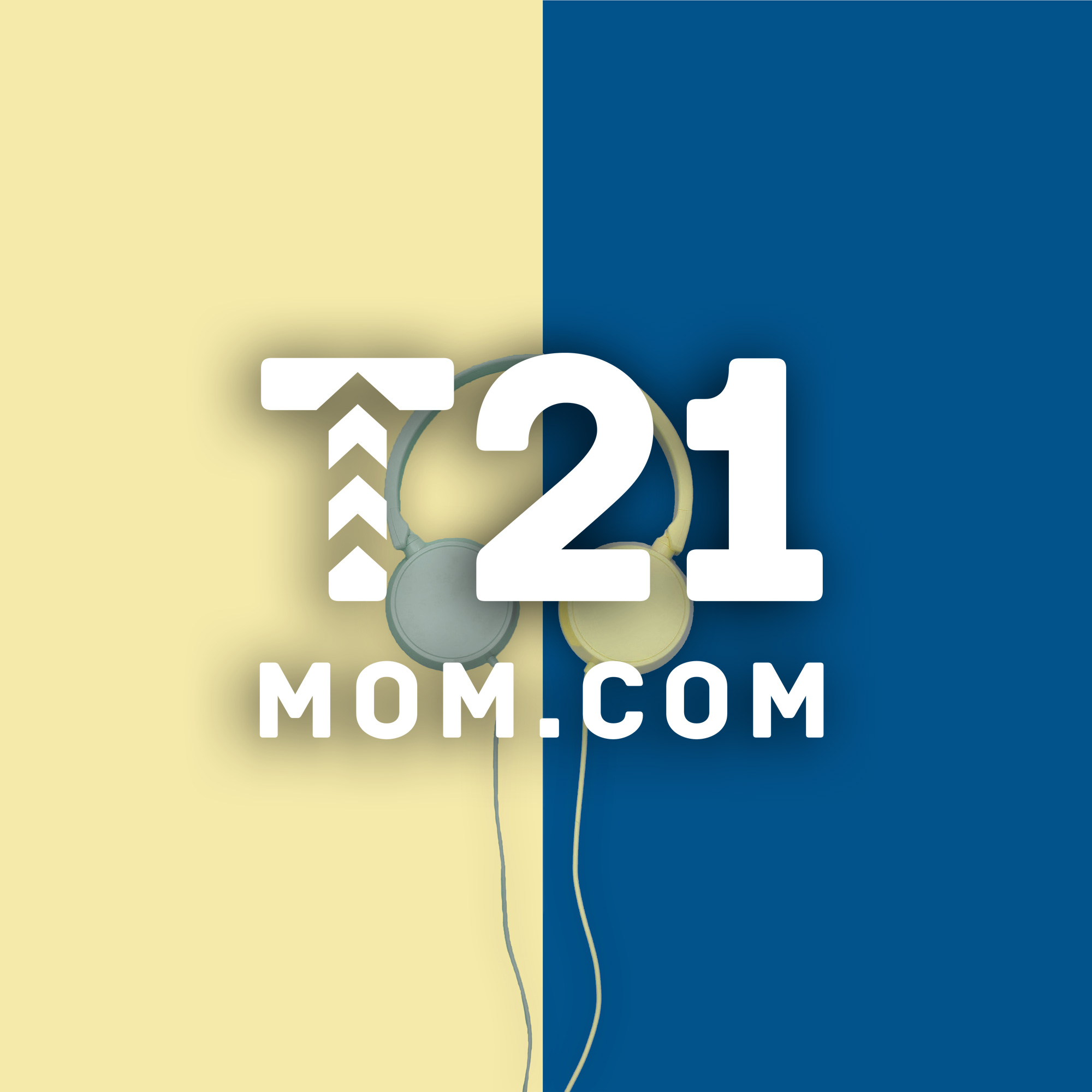
T21Mom-A Down Syndrome Podcast
T21Mom.com
The Collaborative IEP
Ashley Barlow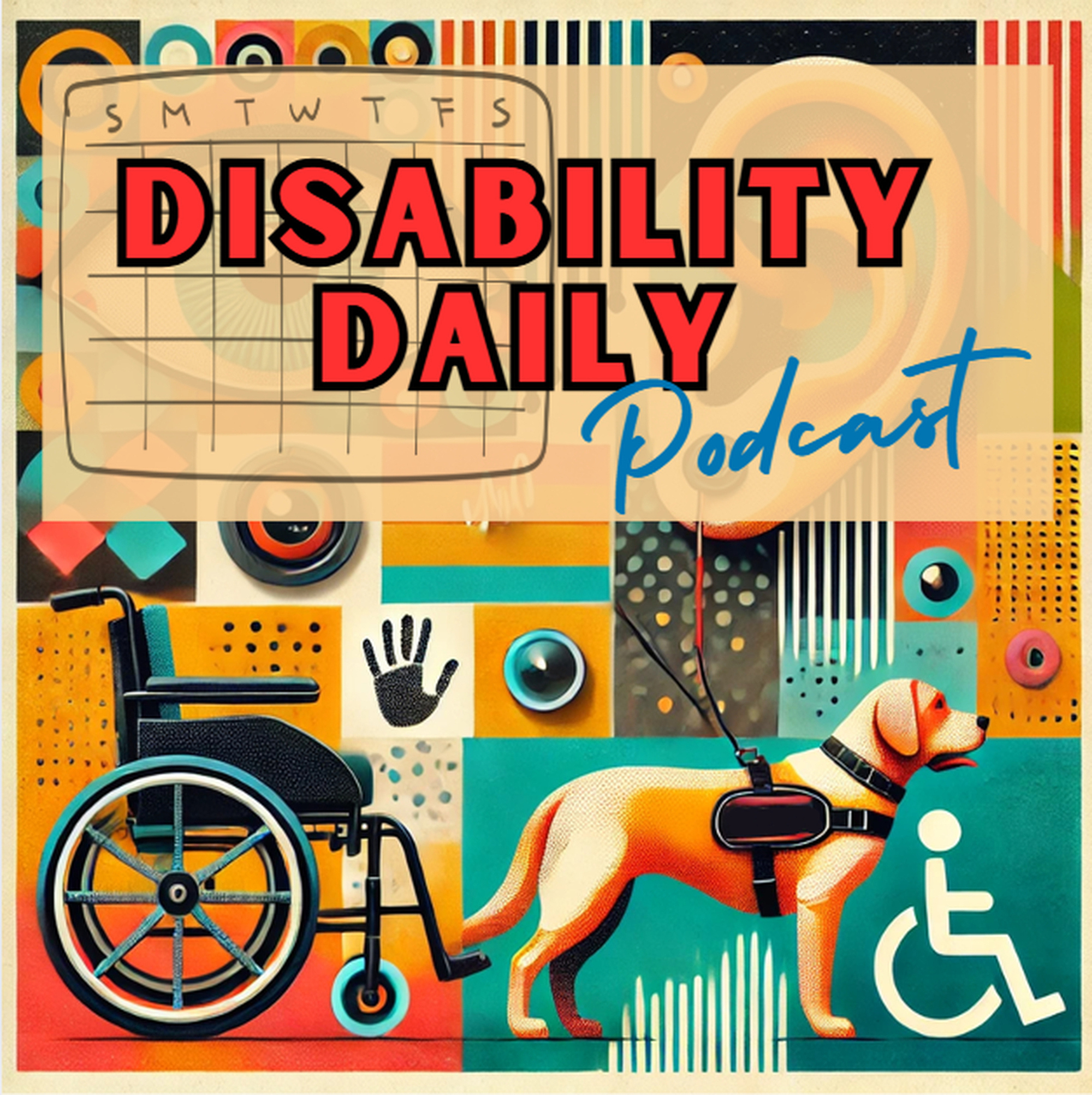
Disability Daily Podcast
Katie Healey, PhD, CPACC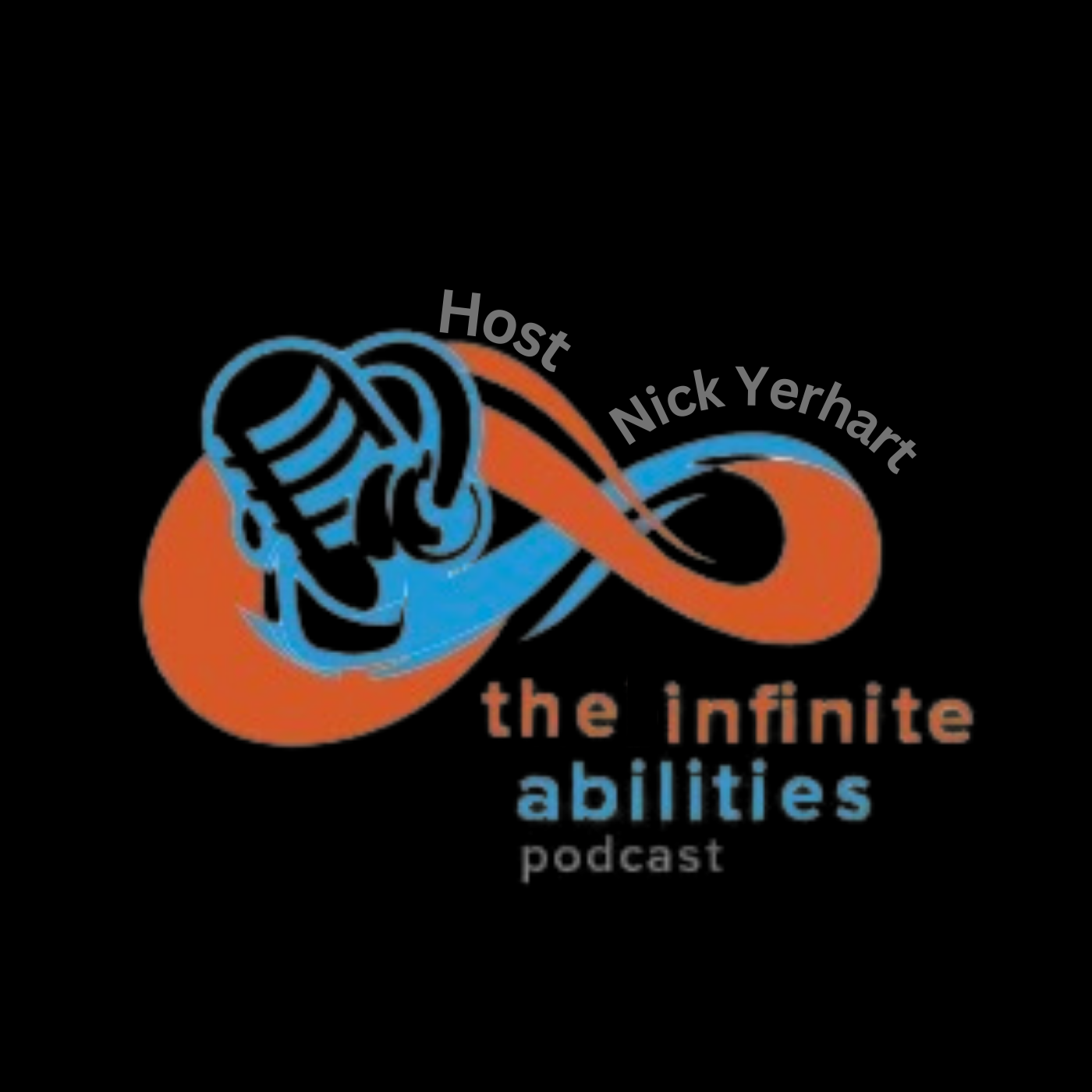
The Infinite Abilities Podcast
Nick Yerhart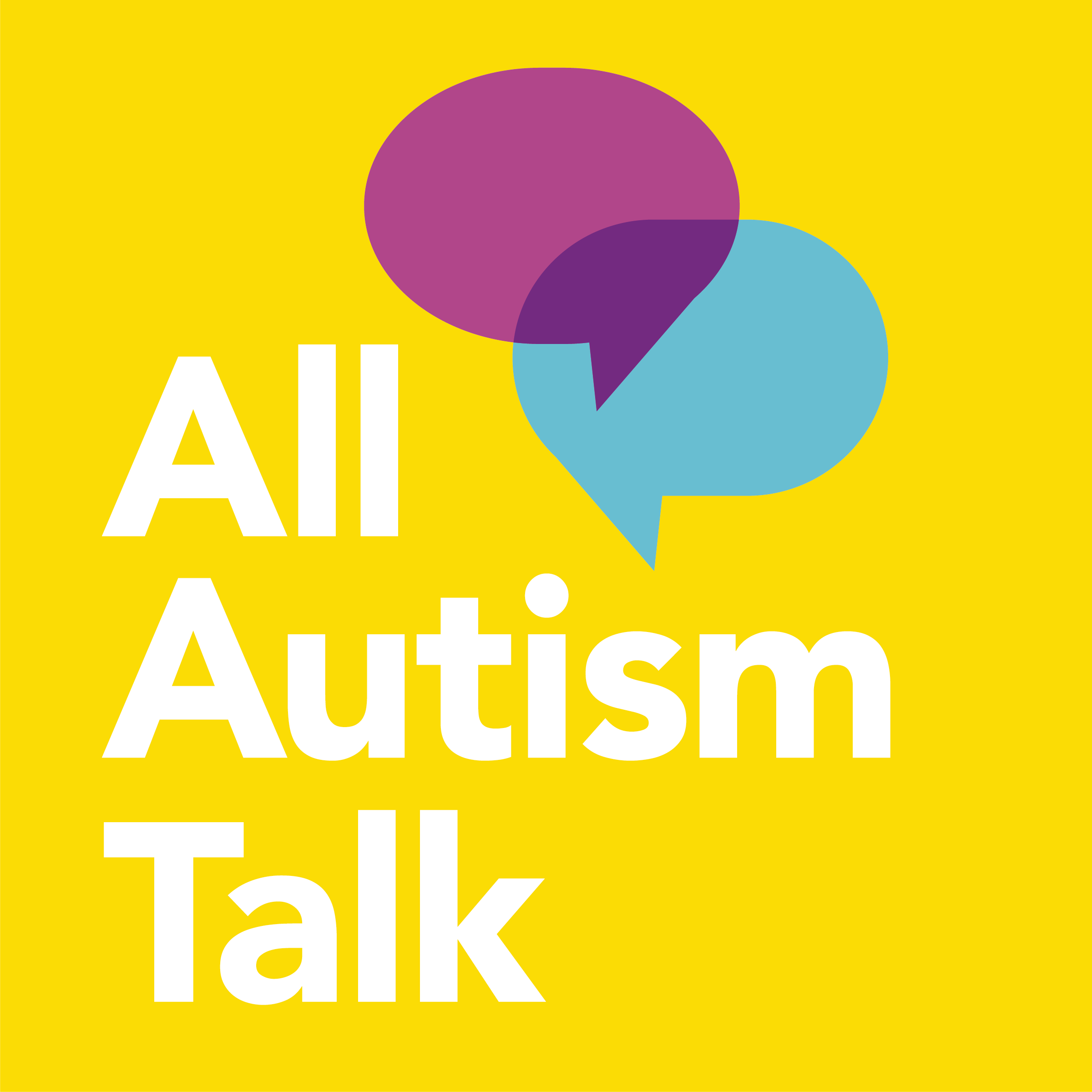
All Autism Talk
All Autism Talk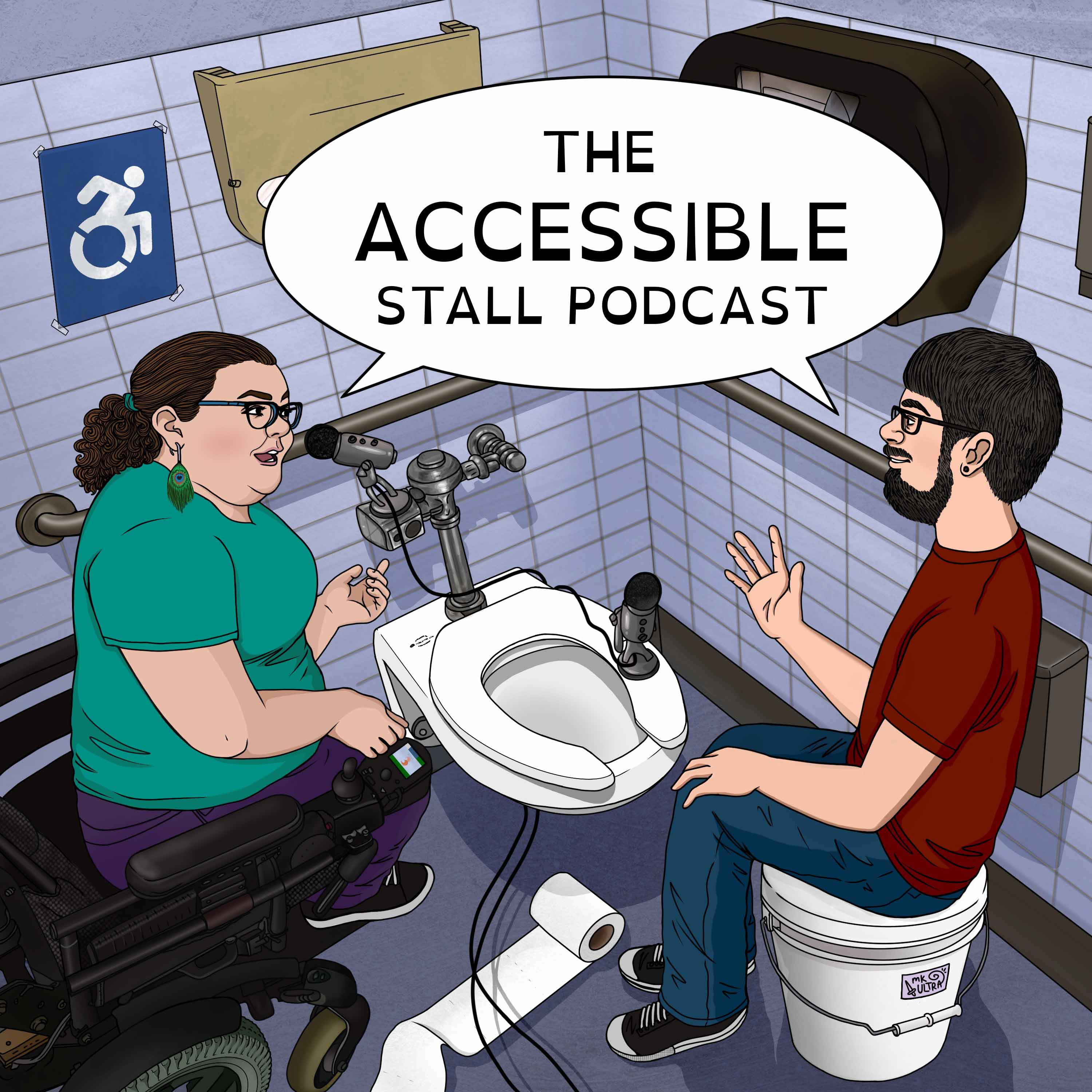
The Accessible Stall
Kyle Khachadurian and Emily Ladau
Disability Deep Dive
Disability Rights Florida
STAY Tuned: Supporting Transition-Age Youth with mental health conditions
STAY Tuned at Transitions to Adulthood Center for Research
Moms Talk Autism Podcast
Shannon Korza, Brittney Crabtree, Tash Dillmon, and Jean Mayer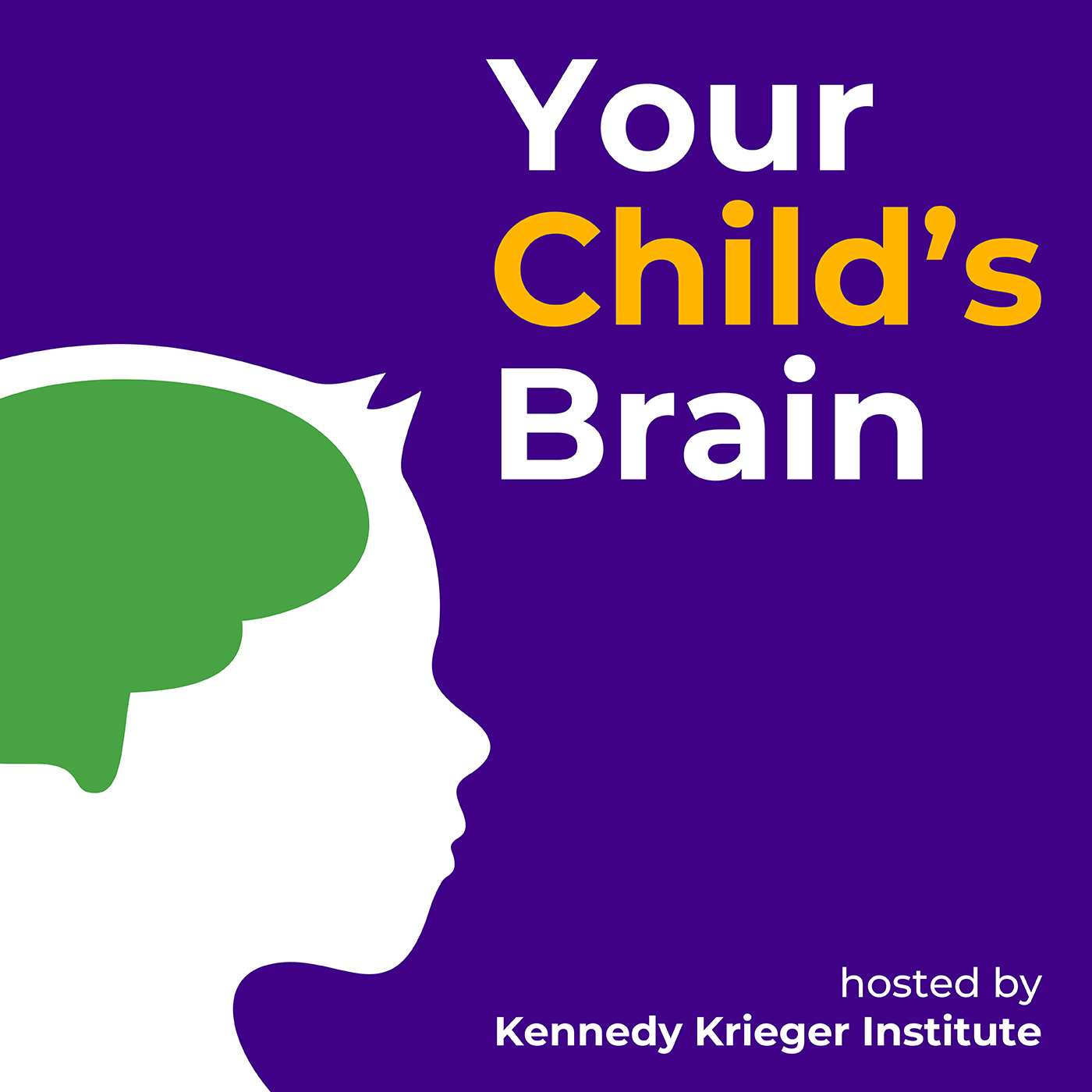
Your Child's Brain
WYPR Baltimore




